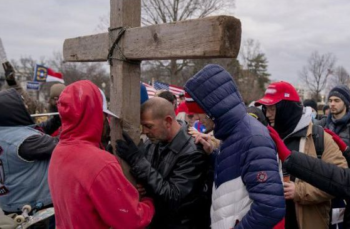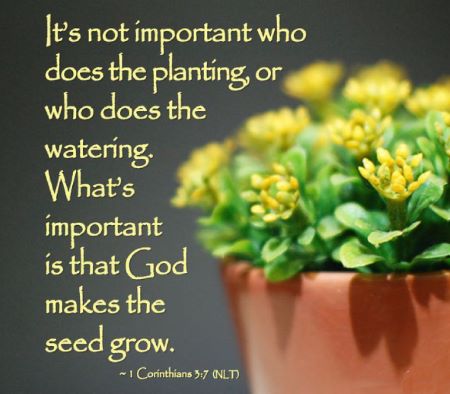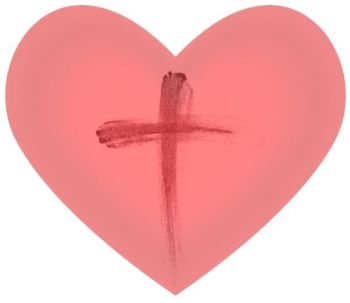
Scope Creep: Blurring the Line
Scope creep in project management refers to changes –– or continuous or uncontrolled growth –– in a project’s scope, and which occurs at any point after the project begins. This can occur when the scope of a project is not properly defined, documented, or controlled. It is generally considered harmful.
I had some first-hand experience with scope creep last weekend, when I helped John S. (who taught me this phrase) change out some electrical outlets and cover plates in two Two Churches’ offices. What began as a simple wiring task, expanded into a cascading series of chores –– the latter ones being dependent on the completion of the former ones, and occasionally requiring one of us to flip circuit breakers and ensure that those outlets carried no power.
And even before I knew what to call it, I’ve had –– as I’m confident all of us have –– this same experience. For example, when going down to the basement ONLY to get a roll of paper towels, I notice that clothes in the washer need to be put in the dryer. So I do that. But before I start the dryer, I need to clean out the lint trap. And while I’m there, I figure I might as well put another load in the washer. But then I notice that the container of soap is just about empty, so I go to the storage closet to get the back-up jug of soap, and see that we’re out of light bulbs. And since we’ve planned a trip to the store later that day, I go up to my desk to add “light bulbs” to the grocery list (so I don’t forget). And as I’m writing that down, my laptop dings, indicating that there’s a new email. So I sit down to quickly scan it, and it’s from a committee chair asking for feedback on some decision. So I do a computer search for the document that will help me frame my feedback. And before I know it, I remember that I need to go back downstairs to get those paper towels and start that load of laundry. Scope creep. Although the definition I found (above) has a negative slant, in my case, everything I did was at least productive. But there is another kind of scope creep which is not only negative, but insidious; because it blurs the line between religion and politics in a not-so-good way. And so I cite and heavily quote a CNN article by Baltimore native John Blake who writes about race, religion, and politics.
The January 6 insurrection marked the first time many Americans realized the US is facing a burgeoning White Christian nationalist movement. This movement uses Christian language to cloak sexism and hostility to Black people and non-White immigrants in its quest to create a White Christian America. A report from a team of clergy and scholars — sponsored by two groups that advocate for the separation of church and state — concluded that this ideology was used to “bolster, justify, and intensify” the attack on the US Capitol.
White Christian nationalist beliefs have infiltrated the religious mainstream so thoroughly that virtually any conservative Christian pastor who tries to challenge its ideology risks their career, says Kristin Kobes Du Mez, author of the New York Times bestseller, “Jesus and John Wayne: How White Evangelicals Corrupted a Faith and Fractured a Nation.” “These ideas are so widespread that any individual pastor or Christian leader who tries to turn the tide and say, ‘Let’s look again at Jesus and scripture,’ are going to be tossed aside,” she says. The ideas are also insidious because many sound like expressions of Christian piety or harmless references to US history. But White Christian nationalists interpret these ideas in ways that are potentially violent and heretical. Their movement is not only anti-democratic, it contradicts the life and teachings of Jesus; some clergy, scholars, and historians say. And there are three key beliefs often tied to White Christian nationalism.
- One of the most popular beliefs among White Christian nationalists is that the US was founded as a Christian nation; that the Founding Fathers were all orthodox, evangelical Christians; and that God has chosen the US for a special role in history. These beliefs are growing among Christians, according to a survey last year by the Barna Group. The group found that an “increasing number of American Christians believe strongly” that the US is a Christian nation, has not oppressed minorities, and has been chosen by God to lead the world. But the notion that the US was founded as a Christian nation is bad history and bad theology, says Philip Gorski, a sociologist at Yale University. “It’s a half truth, a mythological version of American history.” Some Founding Fathers did view the founding of the nation through a Biblical lens, Gorski says; but many did not. And virtually none of them could be classified as evangelical Christians. They were a collection of atheists, Unitarians, Deists, and liberal Protestants and other denominations. And the Constitution says nothing about God, the Bible or the Ten Commandments.
- A belief in a ‘Warrior Christ.’ The incongruity of people carrying “Jesus Saves” signs while joining a mob whose members are pummeling police officers leads to an obvious question: How can White Christian nationalists who claim to follow Jesus, the “Prince of Peace,” who renounced violence in the Gospels, support a violent insurrection? That’s because they follow a different Jesus than the one depicted in the Gospels, says Du Mez, who is also a professor of history and gender studies at Calvin University in Grand Rapids, Michigan. They follow the Jesus depicted in the Book of Revelation, the warrior with eyes like “flames of fire” and “a robe dipped in blood” who led the armies of heaven. White Christian nationalists have refashioned Jesus into a kick-butt savior who is willing to smite enemies to restore America to a Christian nation by force, if necessary, Du Mez and others say.
- A belief there’s such a person as a ‘real American.’ In 2008, the vice presidential candidate introduced a new term to the political discourse. She talked about “the real America.” Since then, many conservative political candidates have used the term “real Americans” to draw contrasts between their supporters and their opposition. And such language has been co-opted into a worldview held by many White Christian nationalists: The nation is divided between “real Americans” and other citizens who don’t deserve the same rights. Gorski’s research revealed a strong correlation between White Christian nationalism and support for gerrymandering; and the idea that “we are the people, and our vote should count, and you’re not the people, and… you don’t really deserve to have a voice.” All of this comes as a growing number of Americans are rejecting organized religion; and the country’s racial and religious diversity is growing. People who identify as white-alone declined for the first time since the census began in 1790, and the majority of Americans under 18 are now people of color.
The economic, environmental, and social justice challenges we face in this country are daunting; as are the political and social divides. But for decades, the United States has decried theocracies and autocracies (wherever they are) which squelch the voice of and democratic will of the people. So has our theological scope creep gone too far (as some believe)? Or has it not gone far enough (as others do)? What do you think Jesus would say?








